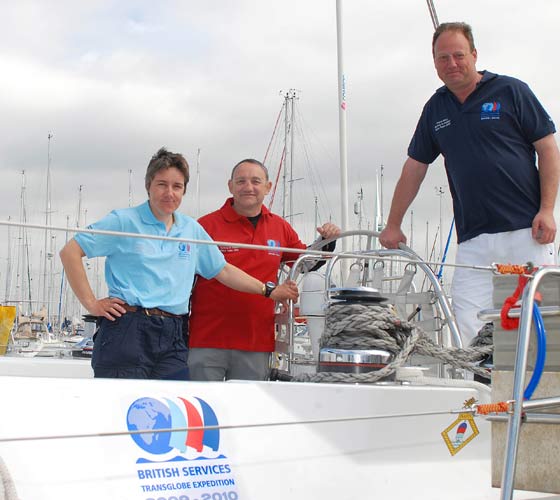
Your support helps us to tell the story
From reproductive rights to climate change to Big Tech, The Independent is on the ground when the story is developing. Whether it's investigating the financials of Elon Musk's pro-Trump PAC or producing our latest documentary, 'The A Word', which shines a light on the American women fighting for reproductive rights, we know how important it is to parse out the facts from the messaging.
At such a critical moment in US history, we need reporters on the ground. Your donation allows us to keep sending journalists to speak to both sides of the story.
The Independent is trusted by Americans across the entire political spectrum. And unlike many other quality news outlets, we choose not to lock Americans out of our reporting and analysis with paywalls. We believe quality journalism should be available to everyone, paid for by those who can afford it.
Your support makes all the difference.They call it Exercise Transglobe, but it will be war on the water when three identical 67-foot yachts, one Royal Navy, one Royal Air Force and one Army, line up in Sydney Harbour on 26 December for the 630-mile Sydney to Hobart Race.
They were in Gosport, Hampshire yesterday to launch a project that will see all three yachts go round the world in 13 stages, always crewed services personnel and combining out and out racing, adventure training, and opportunities for those injured or damaged by war and other traumatising experiences in the course of their jobs.
The travel bill alone has come to nearly £500,000, all of it raised by the 550 people who will take up crew slots or by some specialised charities. The timing – it all starts in July this year and will take a year to complete – has not made it easy to raise sponsorship.
Some has come from the Gill, the marine clothing company and its ceo, Nick Gill, plans to complete three legs, and personal locator beacons have been supplied by McMurdo but the project is largely self-supporting.
The second race leg is from Antigua to Charleston and will see four patients from the Headley Court medical facility on each of the three yachts. There could also be one on each of the other legs, which start with a run down to Lanzarote, across the Atlantic to Rio de Janeiro and then back across to Cape Town.
It is expected that members of 45 Commando of the Royal Marines will join the navy yacht from Cape Town through the Southern Ocean to Fremantle, Western Australia and, after Hobart, the yachts go on to Auckland, Montevideo, and Antigua. The last leg is from Boston back to Gosport.
While each yacht is assigned to a single service, the crews will be mixed in terms of ability, age and gender. There will also be cadets.
Introducing the project, Capt. Nick Fletcher (RN) remembered that the involvement of the services goes all the way back to the inauguration of the Whitbread Round the World Race in 1973, now the Volvo Ocean Race. Sailing yachts around the world had, he said, been a most valuable part of services training.
Join our commenting forum
Join thought-provoking conversations, follow other Independent readers and see their replies
Comments